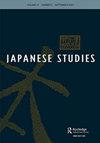The Relationship between Yakyū (Baseball) and Militarism: Baseball Discourse in Japanese Shōnen (Boys’) Culture
IF 0.4
Q3 AREA STUDIES
引用次数: 0
Abstract
Abstract This article analyses the popular post-war boys’ baseball manga Kyojin no Hoshi, to highlight how pre-war militaristic values were carried over into post-war Japanese sports. Militarism in pre-war Japan was underpinned by bushidō, a set of beliefs that idealised the values upheld by samurai, and which greatly influenced Japan’s pre-war physical education system. While post-war Japan achieved democratisation in many ways, the democratic transformation in sports after the war was much slower. For this reason, elements of military training that were included in sports training prior to the war continued to be emphasised in the post-war era. This article uses examples taken from Star of the Giants to highlight this phenomenon, as well as the broader connection between manga and cultural context. It also touches upon cultural representations of fathers and the male gender in post-war Japanese boys’ fiction.棒球与军国主义的关系:日本少年文化中的棒球话语Shōnen
摘要本文分析了战后流行的男孩棒球漫画《河井敬进》,以突出战前军国主义价值观是如何被带入战后日本体育的。战前日本的军国主义以武士道为基础,武士道是一套理想化武士价值观的信仰,极大地影响了日本战前的体育教育体系。尽管战后日本在许多方面实现了民主化,但战后体育的民主转型要慢得多。因此,战前体育训练中包含的军事训练元素在战后继续得到强调。本文以《巨人之星》中的例子来强调这一现象,以及漫画和文化背景之间更广泛的联系。它还触及了战后日本男孩小说中父亲和男性的文化表征。
本文章由计算机程序翻译,如有差异,请以英文原文为准。
求助全文
约1分钟内获得全文
求助全文

 求助内容:
求助内容: 应助结果提醒方式:
应助结果提醒方式:


